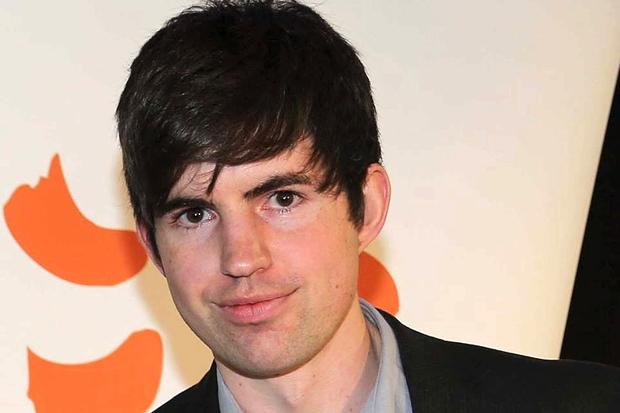The State V Gareth Davies: The Police Persecution of A Journalist Is Part Of A War Against Free Speech
GARETH Davies is chief reporter of the Croydon Advertiser. Police have served him with an harassment order, a “Prevention of Harassment Letter”. His offence? He put allegations to a convicted fraudster.
Free speech is under attack.
As Brendan O’Neil writes:
Britain’s leading liberal writers and arts people can, sans shame, put their names to a letter calling for state regulation of the press, the very scourge their cultural forebears risked their heads fighting against.
So. What of Gareth Davies, the latest victim of the war on free speech?
It states that fraudster Neelam Desai claims Davies contacted her via Twitter and email on more than two occasions “seeking to interview her for a story for a local newspaper.
“She has stated that she does not wish to be contacted or written about by Mr Davies as she feels harassed by these actions. Mr Davies has failed to accept this, but continued to write and and make unsolicited contacts which result in Ms Desai feeling intimidated and persecuted.”
The letter states in bold type: “HARASSMENT IS A CRIMINAL OFFENCE.”
It then states that harassment can take many forms, including “abusive communication” or “repeated attempts to talk to or approach a person who is opposed to this”.
Davies has been conducting an in-depth investigation into Desai which has resulted in five page-leads over the last month.
She is alleged to have met men on an Asian marriage website and then tricked them out of large sums of money using fake identities. One alleged victim claims to have been conned out of £35,000.
Desai, 33, of Beulah Grove, Selhurst, has separately pleaded guilty to a string of frauds involving an international travel business she ran under a false name and is set to be sentenced at Croydon Crown Court on 25 April.
Says Davies:
“Three police officers turned up at the office, showed me this piece of paper and said they were serving me with a harassment notice. They said: ‘Neelam Desai says you have been sending her emails, contacting her on Twitter and asking her for her story.’ They said: ‘We are not here to argue the case. She’s saying you are harassing her, you have to know that if you do this again you are liable to be arrested and prosecuted.’ I said: ‘This is my job. I do intend to write more stories because more and more victims are coming forward to talk to us. What can I do?’ One of them said, because you’re a journalist that doesn’t give you special privileges. You say you are just doing your job, but that’s what the News of the World said and look what happened to that.”
He adds:
“I’m being told if I carry on doing my job I could be liable to be arrested. I’m determined to carry on doing my work because I don’t feel I’ve done anything wrong. Our job is to ask questions. We have to put allegations to people. The ridiculous thing is that a number of her victims haven’t been able to speak to a police officer for love nor money. But I send her a couple of emails and I have three policeman at the door.”
“NEELAM Desai – a self confessed fraudster – has said she feels ‘persecuted’ by articles written about her in the Advertiser. Those articles are the result of an extensive investigation through which our chief reporter has exposed a complex dating website scam, which cost one victim £35,500. Desai, 33, is accused of conning at least three men out of thousands of pounds after contacting them through Asian marriage site Shaadi.com. She used a fake identity and claimed to be raising money for homeless children, but the woman they fell for did not exist. As a newspaper we have a responsibility to put those allegations to Desai, to give her the chance to respond…Our reports have prompted two police investigations into her actions which, for one alleged victim, follows months of fighting for his accusations to be taken seriously. That progress has come from good old fashioned journalism – not ‘harassment’.”
Davies said he first approached Desai to give her a right to reply at her home, in Beulah Grove, Selhurst, on 4 March, and then sent two emails detailing the accusations and “politely” asking her for a comment.
Desai initially alleged assault against Davies – but has since retracted the accusations.
However, she later claimed the emails she received, and the stories written by the paper, were harassment.

The case has prompted fears that the authorities will overreact to Lord Justice Leveson’s call for stricter regulation after the hacking scandal, and intrude on the ability of reporters to conduct inquiries in the public interest. The ability of local newspapers, in particular, to expose wrongdoing on behalf of their communities has been hampered by years of cutbacks. Richard Sambrook, professor of journalism at Cardiff University and a former head of news at the BBC, said: “In a post-Leveson climate it’s important we all remind the public and the authorities that the vast majority of journalism is legitimate and necessary.”
James Welch, legal director of Liberty, the human rights group, said: “The police seem to hand out harassment notices without adequate investigation or consideration of the validity of complaints. The police should be wary of discouraging good journalistic practice with these chilling warnings.”
Jonathan Heawood, director of the Impress Project, which campaigns for tougher press regulation, said: “The police shouldn’t conflate professional local journalism with the systemic phone hacking at The News of the World.” Hacked Off, the lobby group, said there was nothing in Lord Justice Leveson’s report about phone hacking “that would give grounds for the police to overreact in the way that has been reported”.
Dominic Ponsford, editor of Press Gazette, says police risked allowing the Harassment Act 1997 to be used by “scumbags to stop legitimate journalistic questions”.
“Croydon Advertiser chief reporter isn’t some sleazy paparazzo, he’s a local newspaper journalist investigating real injustice. Davies was going the extra mile and doing the sort of proper shoe leather journalism which many deskbound web-focused reporters no longer have the time to do. His crime was to confront her in person on her doorstep and put the allegations to her in the best tradition of our trade and then send her two politely-worded emails…
“The Met Police, and UK police forces as a whole, need to urgently review the way they interpret the Prevention of Harassment Act if they are going to start using it this way. Because, if they don’t, it will soon be used by scumbags, con merchants and corrupt individuals across the country to throw sand into the gears of any persistent journalistic investigation.
“Gareth has said he will stick to his guns, and continue investigating allegations brought to him about Desai. But other reporters may decide it’s not worth the risk and hassle to continue under such circumstances.”
Free speech was hard won. It’s being eroded…
Spotter: Karen.
Posted: 4th, April 2014 | In: Reviews Comment | TrackBack | Permalink



